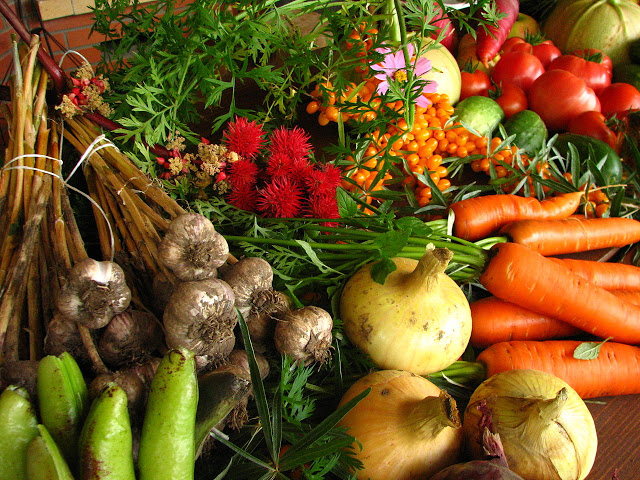

| Online: | |
| Visits: | |
| Stories: |

| Story Views | |
| Now: | |
| Last Hour: | |
| Last 24 Hours: | |
| Total: | |
Vegetables Reduce Stress, The More Daily Serving the Less Psychological Distress
Published today in the British Medical Journal Open, the longitudinal study of more than 60,000 Australians aged 45 years and above measured participants fruit and vegetable consumption, lifestyle factors and psychological distress at two time points, 2006-08 and 2010.
Psychological distress was measured using the Kessler Psychological Distress Scale, a 10-item questionnaire measuring general anxiety and depression. Usual fruit and vegetable consumption was assessed using short validated questions.
Key findings
People who ate 3-4 daily serves of vegetables had a 12 per cent lower risk of stress than those who ate 0-1 serves daily.
People who ate 5-7 daily serves of fruit and vegetables had a 14 per cent lower risk of stress than those who ate 0-4 serves daily.
Women who ate 3-4 daily serves of vegetables had an 18 per cent lower risk of stress than women who ate 0-1 serves daily.
Women who ate 2 daily serves of fruit had a 16 per cent lower risk of stress than women who ate 0-1 serves daily.
Women who ate 5-7 daily serves of fruit and vegetables had a 23 per cent lower risk of stress than women who ate 0-1 serves daily.
At the start of the study, characteristics associated with higher stress included: being female, younger, having lower education and income, being overweight/obese, a current smoker and being physically inactive.
Fruit consumption alone had no significant association with a lower incidence of stress.
There was no significant association between higher levels of fruit and vegetable intake (greater than 7 daily serves) and a lower incidence of stress.
“This study shows that moderate daily fruit and vegetable consumption is associated with lower rates of psychological stress,” said Dr Melody Ding of the University of Sydney’s School of Public Health.
“It also reveals that moderate daily vegetable intake alone is linked to a lower incidence of psychological stress. Moderate fruit intake alone appears to confer no significant benefit on people’s psychological stress.”
These new findings are consistent with numerous cross sectional and longitudinal studies showing that fruit and vegetables, together and separately, are linked with a lower risk of depression and higher levels of well-being assessed by several measures of mental health.
“We found that fruit and vegetables were more protective for women than men, suggesting that women may benefit more from fruit and vegetables,” said first author and University of Sydney PhD student, Binh Nguyen.
The investigators say further studies should investigate the possibility of a ‘threshold’ between medium and higher levels of fruit and vegetable intake and psychological stress.
This research was based on data from the Sax Institute’s 45 and Up Study.
Contacts and sources:
Dan Gaffney
University of Sydney
Source:




